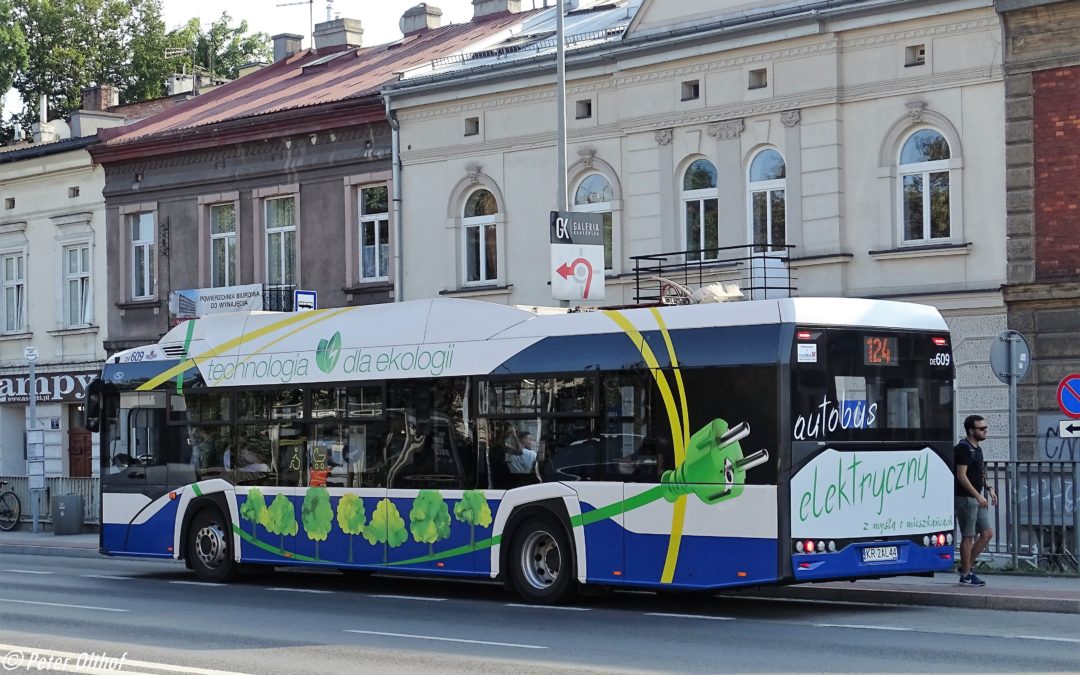A state fund of 60 million zloty has been set up to finance purchases of electric school buses and e-mobility infrastructure in rural communities.
Organised for the second year running by the National Fund for Environmental Protection and Water Management (NFOŚiGW), a public agency, the scheme is part of a wider drive to promote electro-mobility in Poland. So far, however, the efforts have yielded mixed results.
The “Kangur” initiative aims to help introduce “safe and ecological” modes of school transport in rural and urban-rural areas, by funding projects that aim to reduce fuel consumption and pollution.
The fund contains 40 million zloty worth of non-repayable grants and 20 million zloty of repayable funding to buy new electric school buses and support driver training. The refundable grant can also be used to construct new infrastructure or modify existing structures to include charging points for electric buses.
The amount of funding allocated to projects will depend on the size of the commune and its income per capita. Applications close at the end of June.
Last year, the pilot scheme supported four communes – Gręboszów, Bobowa, Bielany and Godzianów – providing funding worth over 9.4 million zloty, of which 8.2 million zloty were non-refundable subsidies.
“[Our] ministry is taking measures to minimise emissions and improve air quality in Polish villages and smaller towns,” explained climate minister Michał Kurtyka. “We want the Kangur programme to benefit as many municipalities as possible, so that students will be able to travel to school using safe and ecological transport.”
His hopes were echoed by Maciej Mazur, managing director of the Polish Alternative Fuels Association (PSPA), who told Energetyka24 that zero-emission transport was needed in rural as well as urban areas, as “the problem of smog in smaller towns is very serious.”
“In addition, subsidies for the purchase of electric school buses will be an impulse for the Polish economy, as vehicles of this type are or will soon be offered by domestic manufacturers.”
“Following the financing of e-buses, there should be an announcement of support for the electro-mobility market in other sectors as soon as possible,” added Mazur.
The Polish government has been championing electric transport in recent years, with the aim to make the country an e-mobility powerhouse. Already in 2017, the government’s Electro-mobility Development Plan listed the benefits of electric vehicles: from research and innovation, to reducing dependency on fuel imports and improving air quality, reports Euronews.
Poland is already one of the leading manufacturers of electric buses in Europe, with more than one in three electric buses in the EU built in the country, according to Electrive.com.
One particular success story is Solaris, which last year won one of the biggest tenders for electric buses in Europe, and has supplied cities across the continent.
But despite the success of firms like Solaris, at the domestic level progress has been slow. The Electro-mobility Development Plan set an ambitious target of one million electric vehicles on Poland’s roads by 2025. But in 2019 this was lowered to a new goal of 600,000 electric cars and hybrid vehicles by 2030, after only 1,324 electric cars had been registered in Poland the previous year.
There are also hopes that long-awaited subsidies for individuals and enterprises for the purchase of electric vehicles will finally be launched this year, but these too will be lower than first anticipated, reports Dziennik.pl.
The Polish subsidy programme was initially set to cover up to 30% of the car purchase price, to a maximum of 37,500 zloty. In January, however, the purchase premium was halved, prompting a warning from PSPA that prospective buyers may be less inclined to purchase e-vehicles without sufficient support.
The PSPA estimates that without any such incentives, only 60,000 electric vehicles would be on Polish roads by 2025 – but that the figure could be five times higher if subsidies were available, reports Bloomberg.
Main image credit: PeterOlthof/Flickr (under CC BY-ND 2.0)

Juliette Bretan is a freelance journalist covering Polish and Eastern European current affairs and culture. Her work has featured on the BBC World Service, and in CityMetric, The Independent, Ozy, New Eastern Europe and Culture.pl.




















